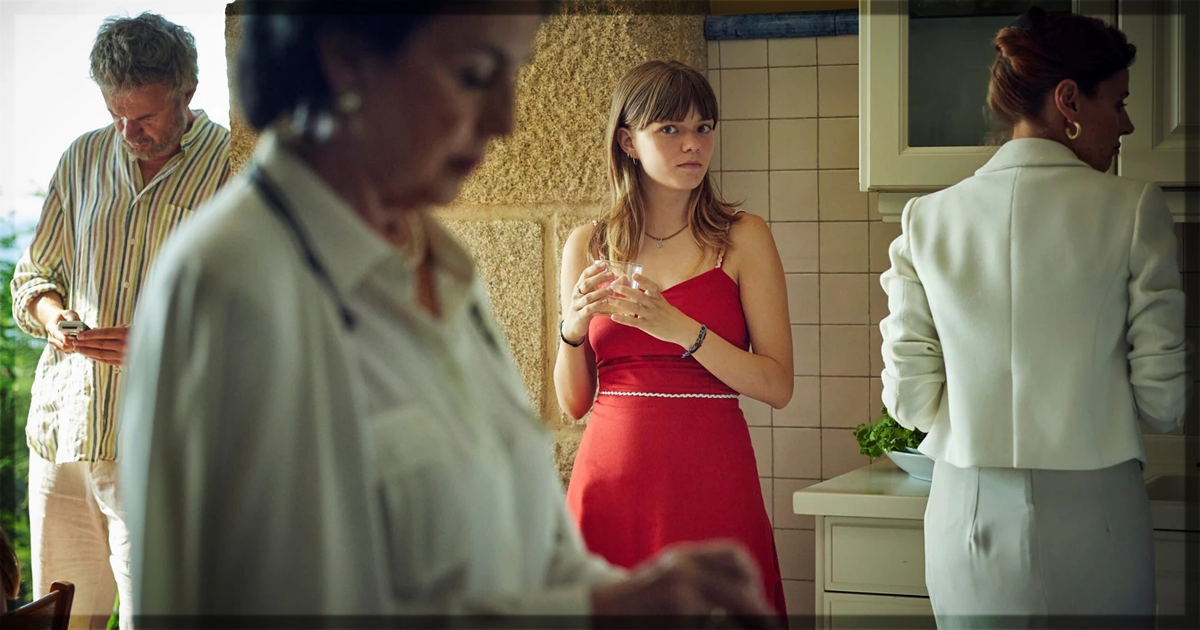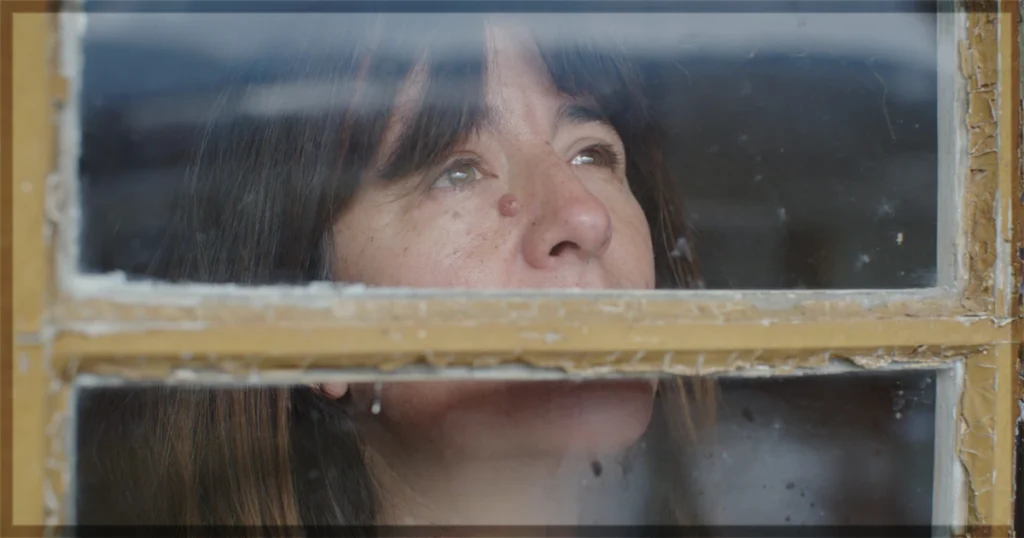Romería is the movie above all others I have been recommending from this year’s Cannes Film Festival. That is because this is such a powerful story, told with such an incredible amount of love, that it is utterly impossible to be unaffected by it. And that is before I mention the dance sequence set in a grotty pre-Olympics Barcelona nightclub to the Spanish punk band Siniestro Total’s song “Bailaré sobre tu tumba,” (“I’ll dance on your grave”) which must go straight into the canon of best dance scenes ever filmed. Romería is a gift and must be seen by anyone who appreciates the personal nature of filmmaking.
Writer-director Carla Simón has spoken about how this and her previous movie, Summer 1993, are based on her own life, but this is not a documentary so that must be set aside in the discussion of the plot.
It’s the noughties and Marina (Llúcia Garcia) has just turned eighteen. Both her parents died when she was a small child and she has been raised by her mother’s family in Barcelona. She has made contact with her father’s family for the first time now that she is an adult; they live in a sailing town on the Atlantic coast north of Portugal and have plenty of money which Marina clearly doesn’t. Her father’s siblings are welcoming, though most of her cousins aren’t. The exception is Nuno (Mitch), who is close to her age and who has a non-judgemental curiosity the other relatives lack. But Marina has another reason for the reunion: while everyone acknowledges that she is her father’s daughter, she was not mentioned on his death certificate, and she only qualifies for special university scholarships if both her parents officially died of AIDS, as everyone also knows they did. The only way she can therefore afford her further education is if her grandparents swear to a notary both that she is their grandchild and how her father died. But the family is still ashamed Marina’s parents were addicts who died of this disease. She might as well want a pet dinosaur.
As the visit continues Marina learns everyone in the family has their own agenda, including the many lies she’s been told over the years by absolutely everybody. The unfairness towards her doesn’t help; the first thing her grandmother says to her is “Why didn’t you come see us sooner?” as if Marina hasn’t made her way to them the first moment she was able. One of the uncles is an alcoholic ridden with guilt that his brother and so many of his friends are dead, but not so guilt-ridden that he won’t borrow cash from Marina for more drinks. But Marina hardly cares about all that. She is in the town where her parents fell in love, and even manages to talk her way into an apartment where they used to live to see it for herself. Her mother’s diaries are read in voiceover as she looks at the things they looked at and sees the things they saw, often while wearing a red dress an aunt has repurposed from one of her father’s shirts.
Hélène Louvart, who also shot Eleanor the Great from this year’s festival, brings a windswept, slightly out-of-focus feel to the cinematography, like you get with blurry snapshots from cheap cameras. It gives the complicated family interactions the bewildering heft these family gatherings often contain, and the red dress ensures Marina is the focus regardless of how many people swirl around her. Ms. Garcia is very good here as she listens to the self-serving reminisces of her aunts and uncles, biting her tongue as she asks for more information about what her parents were like.
And then the movie goes from being one girl’s story into an extraordinary act of love. It’s so subtly and thoughtfully done it takes a little while to realise and then suddenly we are in that nightclub, with gutter punks doing a gleeful routine to “Bailaré sobre tu tumba,” and the impossible happens. Suddenly everyone you loved and lost is right there with you. All your dead friends, all your late and lamented family members, all the youthful hope you had is suddenly back and defiantly laughing at death.
That’s why I’ve been recommending Romería to everyone, including you. It has a love for this horrible, imperfect world and all the irritating, manipulative people in it that’s extremely rare in art, but which is what art is all truly about. We only tell stories about things that matter to us and what matters the most is love. And the extraordinary act of love that is Romería deserves to be experienced by as many people as possible. But when you see it, be prepared to spend some time afterwards with your own ghosts.
Romeria recently screened at the Cannes Film Festival.
Learn more about the film at the Cannes site for the title.


